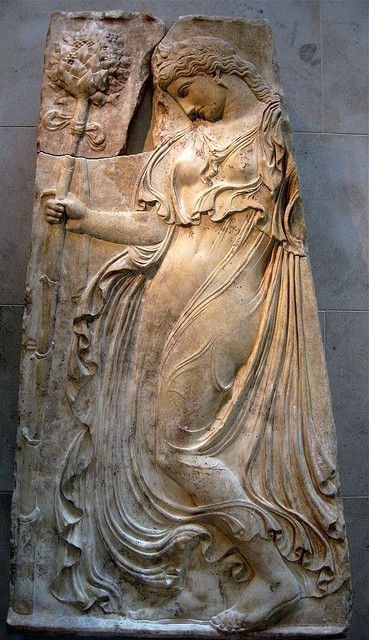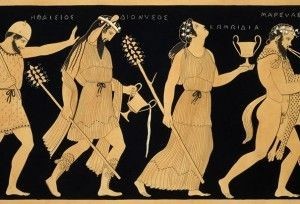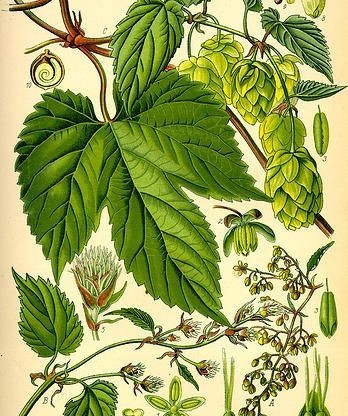
Fandom, Mythology, and Mental Illness (Oh My)
914 posts
War Deities - Ares
war deities - ares

ares: greek god of war, bloodshed, & courage
"not ares, who is a god immortal, not even athene could take the edge of such masses of men and fight a way through them." - homer's illiad.
out of all the gods, ares was the most unpopular on mt. olympus due to his aggressiveness, bad temper, and constant need for conflict. additionally, ares is often featured being humiliated in some sort of way in most of his myths.
while ares is depicted as being a very selfish, bloodthirsty god, he was protective and very loyal to hera.
ares & heracles
cycnus, the son of ares & pelopia, was favored by ares due to his violent nature. he was said to slaughter any unlucky traveler he came across to use their skulls to build a temple dedicated to his father.
heracles was either ordered to kill cycnus by apollo or fought him after being challenged by cycnus himself.
upon his son's death, ares flew into a rage. he fought heracles, nearly winning until athena stepped in to protect heracles. heracles was under athena's protection for quite a while out of fear he would be killed. athena warned ares about his temper, but he refused to hear it. deimos and phobos had to help ares, leading him away from the brutal scene with nothing but a bruised ego, countless injuries, and one less child.
another version of this tale states that cycnus fought heracles with help from ares. the battle ended in a stalemate, as zeus broke up the fight with one of his thunderbolts. later on, ares confronted heracles in a later altercation over in the greek city of pylos. ares, in common theme with a lot of his myths, was gravely wounded and defeated.
the areopagus
alcippe, a daughter of ares and aglaulus, was either assaulted by or nearly assaulted by halirrhothius, a son of poseidon. ares killed halirrhothius to avenge alcippe. poseidon, angered that ares slaughtered his son, took ares and had him tried for halirrhothius' death in athens.
ares was acquitted from the murder charge (slay king). the hill he was tried on, was referred to as areopagus - meaning the hill of ares. athenians tried numerous cases on this hill due to this myth.

sacred plants
paprika, ginseng, basil, mint, hawthorn, ginger, peppers
helm trees, yew trees
buttercups, violets, poppies, cactuses, yarrows, wolfsbane
sacred colors
red
purple
sacred animals
dogs, horses, serpents
ants
barn owls, vultures, woodpeckers, eagle owls
incense
sandalwood
frankincense
dragon's blood
symbols
burning/flaming torch
chariots
armor, helmet
swords, spears
crystals for him
red beryl, tiger's eye, picasso jasper, crocidolite, mugglestone, tektite, crocoite, ruby fushite
tarot cards associated with him
the tower
king of wands
death
the emperor
the lovers
the chariot
epithets of ares
indestructable
valiant, brave
he who bears arms
slayer of men
rejoicing in arms
of the golden helm
he who rallies men
the warlike
beastly
abundant
father of tears
the swift
he who hears
of the horses
the stormer of cities
feasted by women
armed with bronze
spear-brandishing
the mighty
links!
alcippe, history cooperative, greekmythologytours, theoi, mythopedia, theoi shield of heracles, ares and heracles myth 1, cycnus, hellenicgods, cult of ares theoi, ares epithets
-
 devotedlycrookedanchor liked this · 1 year ago
devotedlycrookedanchor liked this · 1 year ago -
 c4ssiopei4 liked this · 1 year ago
c4ssiopei4 liked this · 1 year ago -
 differentsoulsweets liked this · 1 year ago
differentsoulsweets liked this · 1 year ago -
 wish-my-brain-would-shut-it reblogged this · 1 year ago
wish-my-brain-would-shut-it reblogged this · 1 year ago -
 angeliophoros reblogged this · 1 year ago
angeliophoros reblogged this · 1 year ago -
 tetrisdotcom liked this · 1 year ago
tetrisdotcom liked this · 1 year ago -
 darknesscomforted liked this · 1 year ago
darknesscomforted liked this · 1 year ago -
 nyx-ramjam liked this · 1 year ago
nyx-ramjam liked this · 1 year ago -
 supportcourseinsomniac reblogged this · 1 year ago
supportcourseinsomniac reblogged this · 1 year ago -
 supportcourseinsomniac liked this · 1 year ago
supportcourseinsomniac liked this · 1 year ago -
 appolinyou liked this · 1 year ago
appolinyou liked this · 1 year ago -
 blooxxy liked this · 1 year ago
blooxxy liked this · 1 year ago -
 regulusode liked this · 1 year ago
regulusode liked this · 1 year ago -
 cujoceans liked this · 1 year ago
cujoceans liked this · 1 year ago -
 godivaswig liked this · 1 year ago
godivaswig liked this · 1 year ago -
 marmaladedcroissant liked this · 1 year ago
marmaladedcroissant liked this · 1 year ago
More Posts from Wish-my-brain-would-shut-it
Ultimate Greek Mythology guide

TITANS - precursors of the Gods
Children of Uranus (The Sky) and Gaia (The Earth)
Oceanus
Titan of Sea & Water
God of the River
Husband of Thetis
Hyperion
Titan of Light, Wisdom, & Vigilance
God of Heavenly Light/ Sunlight personified
Father of Helios, Selene, and Eos
Husband of Thea
Conus/Kronos - Saturn
Castrated his father, Uranus
Titan, Ruler of the universe
God of destructive time
The youngest child of Uranus and Gaia
Father to Hestia, Hades, Demeter, Poseidon, Hera, and Zeus
Husband of Rhea
Rhea
Titan Goddess of Healing and Childbirth
Tricked Cronus into swallowing a rock, saving her son Zeus
Wife of Cronus
Themis
The personification of Justice, Divine Order, Law, and Custom
Fondly known as Lady Justice
Mother of the Fates and the Seasons
Associated with oracles and prophecies
Iapetus/Japetus
Father of Atlas, Prometheus Epimetheus, and Menoetius
Not much else is said about him
Coeus
Titan of the North, Resolve, and Intelligence
Also known as the Polus/ personification of the celestial axis
No active part in Greek Mythology
Mnemosyne
Titan Goddess of Memory
Mother to the Nine Muses
Tethys/Thetis
Wife of Oceanus
Mother to many powerful deities
Atlas
Titan of Astronomy and Heavenly Constellations
Condemned to Hold up the sky for eternity (so Uranus and Gaia couldn’t meet again)
Punishment bestowed by Zeus
Epimetheus
The Stupid Titan
Known as Afterthought or Hindsight
Helped in the creation of mankind
Brother of Prometheus
Eos
Titan Goddess of the Dawn
Mother of the Wandering Stars
Leto
Titan Goddess of Motherhood
Mother to Apollo and Artemis
Daughter of Coeus and Pheobe
Menoetius
Name means “Doomed Might”
Father of Patroclus
Asteria
Name suggests Titan Goddes of Nocturnal Prophecy, Night, and Stars
Mother of Hecate
Eurybia
Titan Goddess of the Mastery of the Seas
Lelantos
Titan of Air
Minor mythological figure
Pheobe
Titan Goddess of Prophecy
Mother of Leto
Wife of Coeus
Theia
Titan Goddess of Sight and Vision
Mother of the Sun(Helios), Moon(Selene), and Dawn(Eos)
Selene/Mene - the Moon
Titan Goddess and Personification of the Moon
Drives her Moon Chariot across the Heavens
Helios/Helius - the Sun
Titan and Personification of the Sun
Drives his Horse-drawn Chariot through the sky
Prometheus
Titan of Fire
Known as Forethought” - Able to Foretell the future
Helped in the creation of mankind
Stole fire from the Gods of Olympus and gave it to humanity to form technology, knowledge, and civilization
Brother of Epimetheus
GODS
The 12 Olympians
Zeus - Jupiter
God of the Thunder, Skies, and King of the Gods
Son of Cronus and Rhea
Notorious for Throwing lightning bolts when angry
All roads lead to Zeus
“Husband” of Hera (among many others)
Poseidon - Neptune
God of Seas, Storms, Earthquakes and Horses (???)
Son of Cronus and Rhea
Carries a Trident as a symbol of power
Posedions temper controls the seas
Protector of seafarers and guardian of cities and colonies
Husband of Amphitrite
Hera
Goddess of Women, Marriage, and Queen of the Gods
Vengeful and Jealous (take it out on humans and other goddesses)
Only bares children to Zeus
Daughter of Cronus and Rhea
Wife of Zeus
Demeter
Goddess of the Harvest and Agriculture
Controlled Seasons and Growth of crops
Mother of Persephone
Daughter of Cronus and Rhea
The Barrenness of winter is caused by Demeter’s sadness about Persephone being with Hades.
Aphrodite - Venus
Goddess of Love, Fertility, and Beauty
Daughter of Zeus OR Risen from the Sea
Wife of Hephestus - Cheated on him with Ares
Athena
Goddess of War, Wisdom, and Battle Strategy
Born from Zeus’s Head in full armor
Female counterpart to Ares
Artemis
Goddess of the Hunt, the Wild, Animals, Nature, Vegetation, Care for Children, and Chastity
Twin sister of Apollo
Daughter of Zeus and Leto
One of the Virgin Goddesses
Apollo
God of Light, Music, Poetry, Art, Healing, Archery, Dance and Prophecy
Known as The Healer - Can both Heal and Spread disease
Taught Humans the art of Medicine
Twin brother of Artemis
Son of Zeus and Leto
Unlucky in Love
Ares - Mars
God of War and the Spirit of Battle
Son of Zeus and Hera
Carries a blood-soaked Spear
Was with Aphrodite
Hermes - Mercury
The Messenger God of Thieves, Wealth, Luck, Language, and Travel
Clever and mischievous
Credited with the invention of Boxing and Gymnastics
Youngest Son of Zeus
Depicted wearing Winged Shoes
Hephaestus
God of fire, metalworking, and sculpture
Associated with craftsmen and blacksmiths
Physically Flawed
Known as The Lame One due to being thrown off Mount Olympus by Hera
Son of Zeus and Hera
Husband of Aphrodite
Hestia (Unclear)
Goddess of Hearth, Family, and Home
Daughter of Cronus and Rhea
Interchanged with Dionyusus as an Olympian
Dionysus(Unclear)
God of Wine, Theature, Festivities, and Fertility
Cultivated Grapes and taught Humans how to make Wine
Son of Zeus
Interchanged with Hestia as an Olympian
Other Gods and Goddesses
Hades - Pluto
God of the Underworld
Son of Cronus and Rhea
Not one of the 12 Olympians, contrary to popular belief
One of the more peaceful Gods
Rules the underworld along with Nyx
Husband of Persephone - And he’s loyal to her
Eros
God of Love
Promotional Deity
Companion of Aphrodite
Born of Chaos and witnessed the creation of the Cosmos
Blessed the Union of Gaia and Uranus
Psyche
Goddess of the Soul
Lover of Eros
Nyx
Primordial Goddes of the Night
Feared by Zeus
Mother of Hypnos(Sleep) and Thanatos(Death)
Hypnos
God and Personification of Sleep
Son of Nyx and Erebus
Brother of Thanatos
Thantos
Personification of Death
Son of Nyx
Brother of Hypnos
Appears to Humans to carry them to the underworld
Ordered by the Fates
Iris
Goddess of Rainbows and Messanger between Humans and Gods
Personal Messenger of Hera
Hecate
Goddess of Magic, Crossroads, Witchcraft, Sorcery, Ghosts, and Necromancy
Daughter of Perses and Asteria
Hebe
Goddess and Personification of Eternal Youth
Daughter of Zeus and Hera
Wife of Hercules (one of three)
Power to Restore Youth to Mortals
The Fates
divinities that presided over human life
1. Clotho, The Spinner - Birth
2. Lachesis, the Alloter - Life
3. Atropos, The Inevitable - Death
The Nine Muses
Protecters of Arts and Creativity
1. Urania - Astronomy
2. Polyhymnia - Hymns
3. Melpomene - Tragic Theater
4. Thaila - Comedic Theater
5. Clio - History
6. Calliope - Epic Poetry
7. Euterpe - Song and Elegiac Poetry
8. Terpsichore - Dance
9. Erato - Lyrical Poetry
Nemesis
Goddess of Revenge
Embodiment of Jealousy, Envy, and Anger
Believed to punish Gluttony
Tyche
Goddess of Success, Fortune, Luck, and Prosperity
Determined the fortune of people and Cities
So, I really like Bacchus/Dionysus. I don't work with him or anything, I just like his queerness and feminist agenda. But there is something that has been annoying me... His staff is not a pine cone.
Here are some examples of said staff(held by him, some maenads, and his wife):





The staff is described as a pine cone with oak leaves around it, he is also said to be wearing an oak leaf crown.
Here's the thing, why would the god of wine and drunken parties have a pine cone with oak leaves?
The answer is that he wouldn't.
So what is this plant? You may ask, well as a gardener and plant enthusiast as well as a study of Greek art and myth, I give you:




HOPS!!!!!!!!!
This is literally what they make beer with, wheat and hops.... And Dionysus is the god of alcohol. So the reasonable assumption should be that this is the plant that he is holding!!!
But I can't find a single article about this! Not even any speculation!! Why!! It's driving me crazy so I thought I'd share it with you all.
(Now I can understand a little why no one has ever realized this, hops are like two inches long a piece so it is a giant hop, but he's a god!!! He could totally create giant hops!!)
On Zeus and Hera: divine conflict
When one consults the lore about Zeus and Hera, they may notice a pretty consistent pattern in their relationship: that is, the terrifying and constructive nature of their conflicts and disputes with each other, where a frustrated Zeus matches his brains with an equally frustrated Hera. This may lead some people to think that they don’t love each other, while this is simply not the case, which is why I’m writing this rant about the nature of the two head gods of the Olympian pantheon’s conflict with each other, and the ways in which it is significant in maintaining the balance of the universe.
First of all, Zeus and Hera are siblings. Siblings bicker and fight all the time, but that doesn’t mean they don’t love each other. In fact, the love of Zeus and Hera is recounted in multiple bits of poetry, and their wedding famously lasted 300 years. The myth of the founding of the Daidala festival reinforces this notion of deep love and respect that the two gods have for each other, especially the one that Zeus has for Hera, his wedded wife and definitive partner.
Next up, the conflict between the two of them is a reminder of the equal nature of their marriage, as Zeus never argues with any other deity than Hera, nor does she argue with anyone other than her husband, with both allowing their points and desires to be heard and understood by the other. In the Iliad for example, Hera is the only goddess with whom Zeus shares his plans for the fate of Troy, to which she responds with her own plans to bring glory to the Acheans before all of it comes to pass, making the divine couple agree on the following course of events that will lead to the fall of Troy. This shows that this divine conflict, so often misinterpreted as divisive, serves as a means of determining the way in which the fate of the universe will be carried out.
Like Eve in the bible who was cursed with a mind contrary to her husband, Hera has a will opposed to that of Zeus, which serves as a challenge to him and a reinforcement of his diplomatic power, a good quality for a king to have, which ultimately leads to the solidification of his reign as supreme, since he is able to not only marry his way back into Olympus through Hera (she is a symbol of legitimacy after all), but also reconcile his will with that of a contrary goddess such as Hera, thereby making him seem wiser and peaceful in the eyes of the gods, to whom he is a father and a sibling.
Moreover, Zeus even appreciates, or at least accepts the fact that Hera is constantly bickering with him, as seen in the Iliad, when he sends Iris to scold Athena for being against his will while letting Hera walk away without consequence, even specifying that her character opposes his. Another example is in one version of the story of Tiresias, where the divine couple argued about who gets the most pleasure during sex and call Tiresias to give his opinion on the matter, having been man and woman at multiple points of his life.
Hera and Zeus argue all the time, but the Eris (discord/strife) omnipresent in their relationship is not the destructive, war-creating Eris that we all know and love (Hesiod identified two Erises), but the one that makes rivals compete, the one that makes opponents fight, and the one that makes siblings quarrel. As such, it is no coincidence that she is sometimes the daughter of the divine couple, and that her presence leads to constructive forms of conflict that facilitate the reconciliation of two opposing sides, making her a force of peace instead of lasting hatred that one thinks of when they hear the word “discord”.
Sure, everyone talks about Hera resenting and persecuting other women Zeus has children with, but let's also talk about Themis and Dione, both consorts of Zeus, coming to support Leto on Delos during her labour (Homeric Hymn 3), Maia raising Kallisto's son by Zeus (Apollodoros, Library 3.101), Leto raising a son of Zeus and Europa (Pausanias, Description of Greece 3.13.5), and Artemis and Athena being reared together with Persephone (Diodoros of Sicily, Library of History 5.2.3), which leads me to believe that (at least in this tradition) Demeter and Leto are on good terms and raised their daughters (and Athena) in common.
